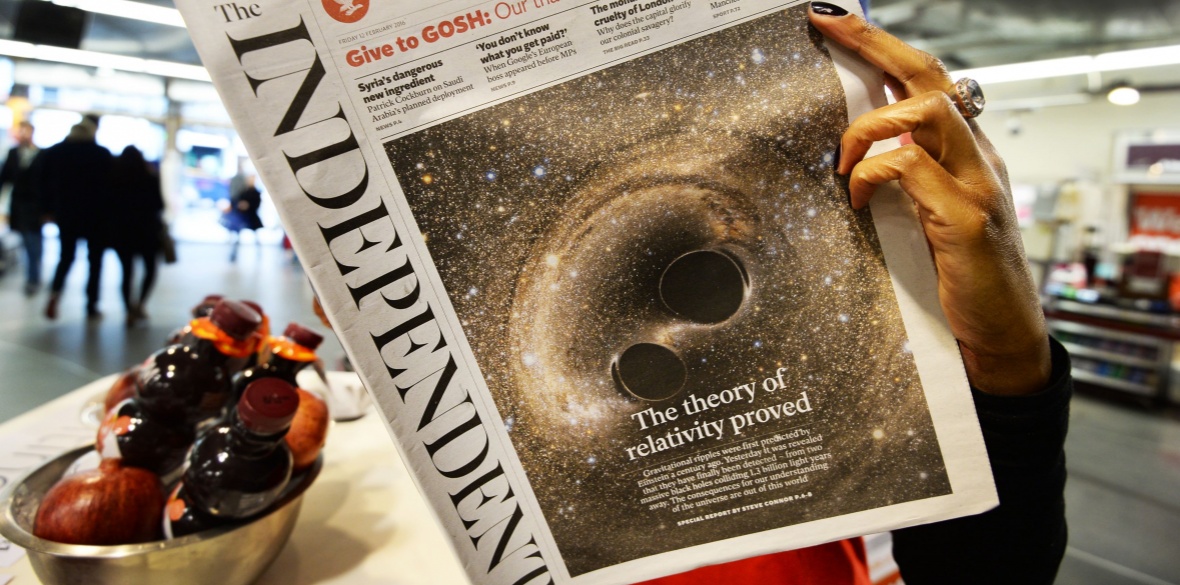This is the last article you can read this month
You can read more article this month
You can read more articles this month
Sorry your limit is up for this month
Reset on:
Please help support the Morning Star by subscribing here
IN the early 1990s, the Daily Mirror ran a story contrasting the squalid state of Britain’s schools under education secretary John Patten and his department’s swanky new offices in Westminster.
The new lodgings, at Sanctuary Buildings, Great Smith Street, were costing £12 million in rent, and featured an atrium with foliage hanging from the ceiling to the ground floor.
The following day, Richard Garner, the journalist behind the story, received a phone call from a DfE official.
“Congratulations on your story,” the civil servant said, “but there’s one thing you missed out. The spiders.”
And so the Mirror ran a follow-up revealing that the department was buying in thousands of spiders, blackfly and wasps to control the greenfly that inhabited the foliage.
This episode exemplifies something about Garner, who died two weeks ago aged 69.
He was a journalist from the profession’s golden age — but reserved and thoughtful, he was about as far from the caricature of the Fleet Street hustler as you could get.
He had an eye for intrigue as well as one for detail. The fact that gold-dust stories landed in his lap was not down to luck.
It was down to the skill of a reporter who knew that building relationships with contacts across his patch — and gaining their trust — was the most important part of the job.
So in spite of his quietness, he was the life and soul of the conference circuit — as I found out when I began covering education stories for the Morning Star in 2015.
Among the education correspondents of the British press, Garner, by then long settled at the Independent, was the leader of the pack.
That meant not only booking the restaurants for correspondents’ dinners at union conferences, and being among the last to call it a night in the hotel bars, but mentoring young upstarts like me.
He was always generous with his expertise on the “education world” as he called it, and its history — and answered probably tiresome questions on the implications of statistical shifts and policy changes with the utmost patience.
It was not long after we met, however, that the Indy announced its closure as a print newspaper. Though of course he wished his colleagues well, he was quietly sceptical that an online-only publication could ever serve the same role and garner the same respect.
That, and his desire in his middle sixties to spend more time with cricket and the theatre, meant he chose to step back from front-line reporting.
His last job for the Indy was an NUT conference in Brighton, where I recall his thrill as we toasted his final front page, when it appeared on a late-night BBC newspaper review, with whiskies in the Metropole hotel.
Earlier that week he had been repeatedly pestered by an ignorant PR who insisted he should cover a rather boring corporate survey.
“You do realise the Independent is closing this week?” Garner had asked.
“It isn’t closing, it’s going online,” snapped the PR. “Well I’m closing,” Garner retorted, and drew the conversation to a polite close.
Born in 1950 in north London, the son of a draper, Garner attended the private Highgate School alongside future education secretary Charles Clarke.
Unlike Clarke, however, he did not attend university — instead completing a one-year journalism course at Harlow College before landing a job at the Camden Journal under the legendary Eric Gordon.
According to its successor paper the Camden New Journal last week, Garner would often say: “College gave me the skills to be a journalist but it was my first job that made me one.”
Still, he would later find himself one of the only Fleet Street education correspondents with personal experience of further education.
After the Journal, he went on to work at the Kent Messenger and then the Birmingham Evening Mail, where he became education correspondent for the first time.
He could have headed down a different road had he been successful in an interview for a Radio 1 DJ slot.
Driving to London in 1980 to take up a job at the Times Educational Supplement, he turned on the radio to hear the immortal words of Pink Floyd: “We don’t need no education.”
In Garner’s 2016 memoir, The Thirty Year War: My Life Reporting on Education, he wrote: “I remember thinking: I hope they’re wrong.”
Thirty-six years on, I recall him saying the song’s refrain reflected the sentiment of the online Indy, which was not replacing him — although it later saw the error of its ways, and once again provides stellar coverage of the beat.
From the TES, he would go on to the Mirror and then the Independent, where he spent a decade and a half prior to retiring.
He saw 16 education secretaries come and go over 36 years, many of them attempting to implement the changes their predecessors had failed to pull off — and more still seeking to reverse any successful reforms.
Garner had a legendary run-in with Dominic Cummings, then a largely unknown adviser to education secretary Michael Gove, in his latter reporting years.
In a 3am email complaining about a story in the Independent, Cummings advised Garner to consult a colleague, the Financial Times’s Chris Cook, on seeking a “good therapist.”
Gove subsequently contacted the Independent’s editor to demand — in vain — that Garner be sacked.
The FE sector was an ongoing focus of his reporting, along with modern language tuition in state schools and Kenneth Baker’s technical schools initiative.
Garner also keenly followed the calls for professional unity among teacher unions, which he lived to see realised in the creation of the National Education Union two years ago.
“He was one of Britain’s education greats,” professional unity campaigner and former ATL president Hank Roberts recalls. “[Garner] took a progressive line about the need for proper funding of education and good working conditions to enable our young to get quality education. He became a great personal friend and a consistent supporter of professional unity.”
In retirement, Garner kept to a stringent writing routine, first completing his memoir, and then producing three entertaining crime novels — the first of which, Best Served Cold, had a teaching union conference as the scene of the crime.
He returned to the TES as a columnist, and kept in touch with the many friends he had made in the education sector.
He married his third wife, Barbara, just a few weeks ago. His funeral will be held in Stevenage tomorrow, on what would have been his 70th birthday.

 Conrad Landin
Conrad Landin








